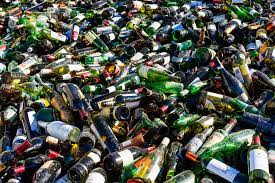Increasingly, it seems Shell is a company which repeatedly makes pledges when the light is on them, and then backs away, when no one is looking any more.
In the summer, they dropped a pledge to turn 1 million tonnes of plastic a year, back into oil. They now say that this goal is unfeasible. Advanced, or chemical recycling, involves breaking down plastic polymers into tiny molecules, ready to be reformed into something else. The most common method is called pyrolysis – which uses heat.
They first used pyrolysis in 2019, when they made oil using this process in a Louisiana chemical plant. It should be noted, that this uses so much energy, it is likely to be worse for the worlds climate than continued use of virgin plastics (this is not to say that we should, but that this is not a viable solution). Shell has suggested that this pledge is impossible as a result of not enough plastic waste coming back to them, but as hundreds of millions of plastic is created each year, this seems rather a cop-out.
They are not the only company to back away, but they are the latest. It should not be possible to get off the hook by simply making a declaration, but instead should require them to do something else that will have a similarly positive impact on the world













